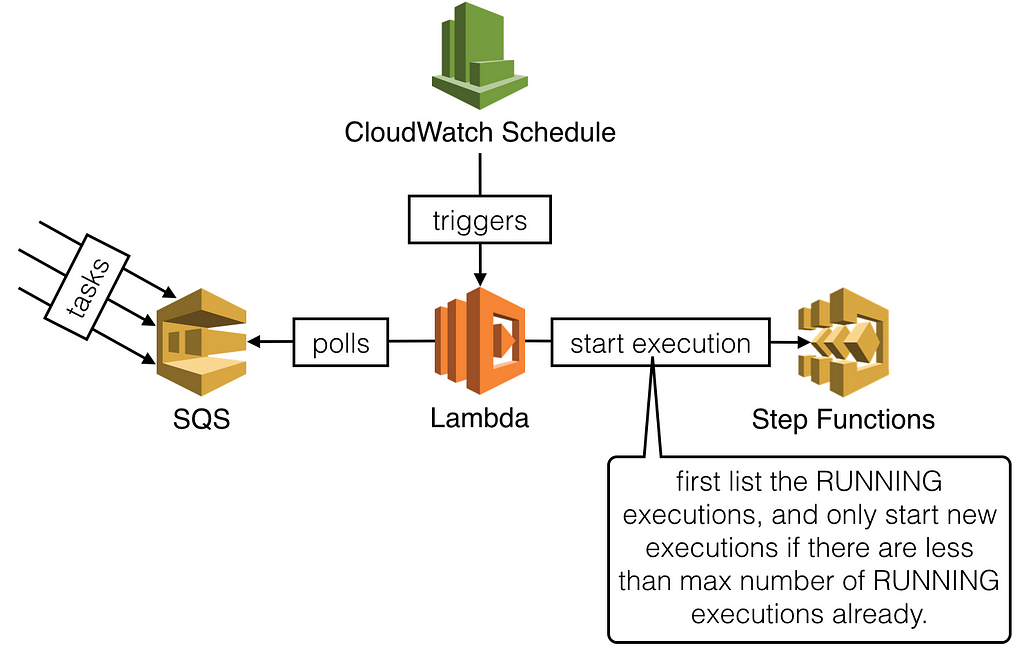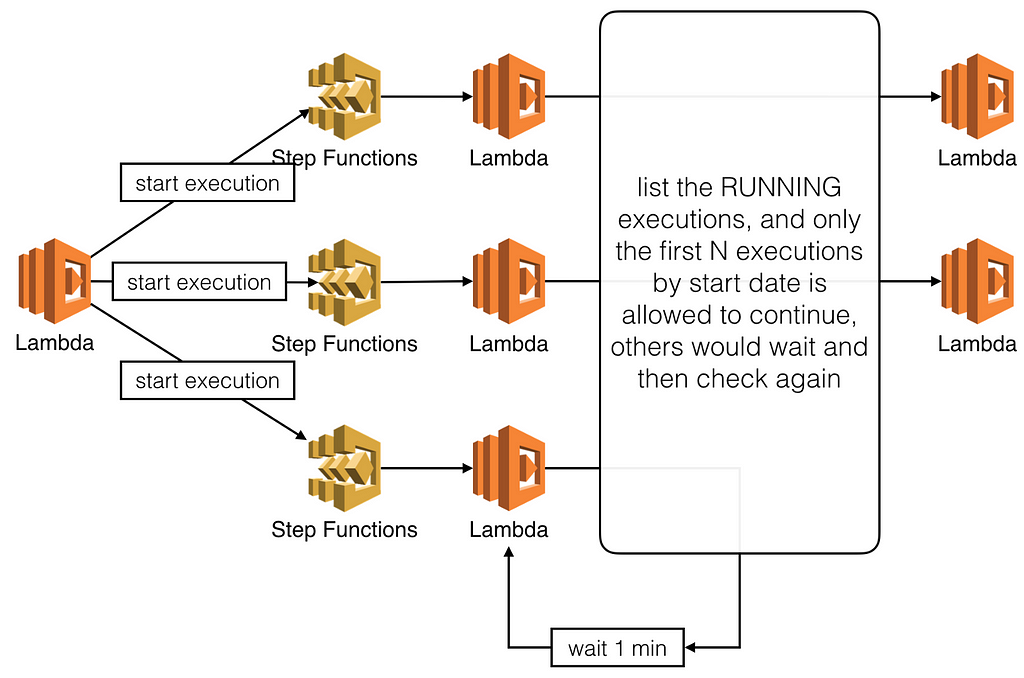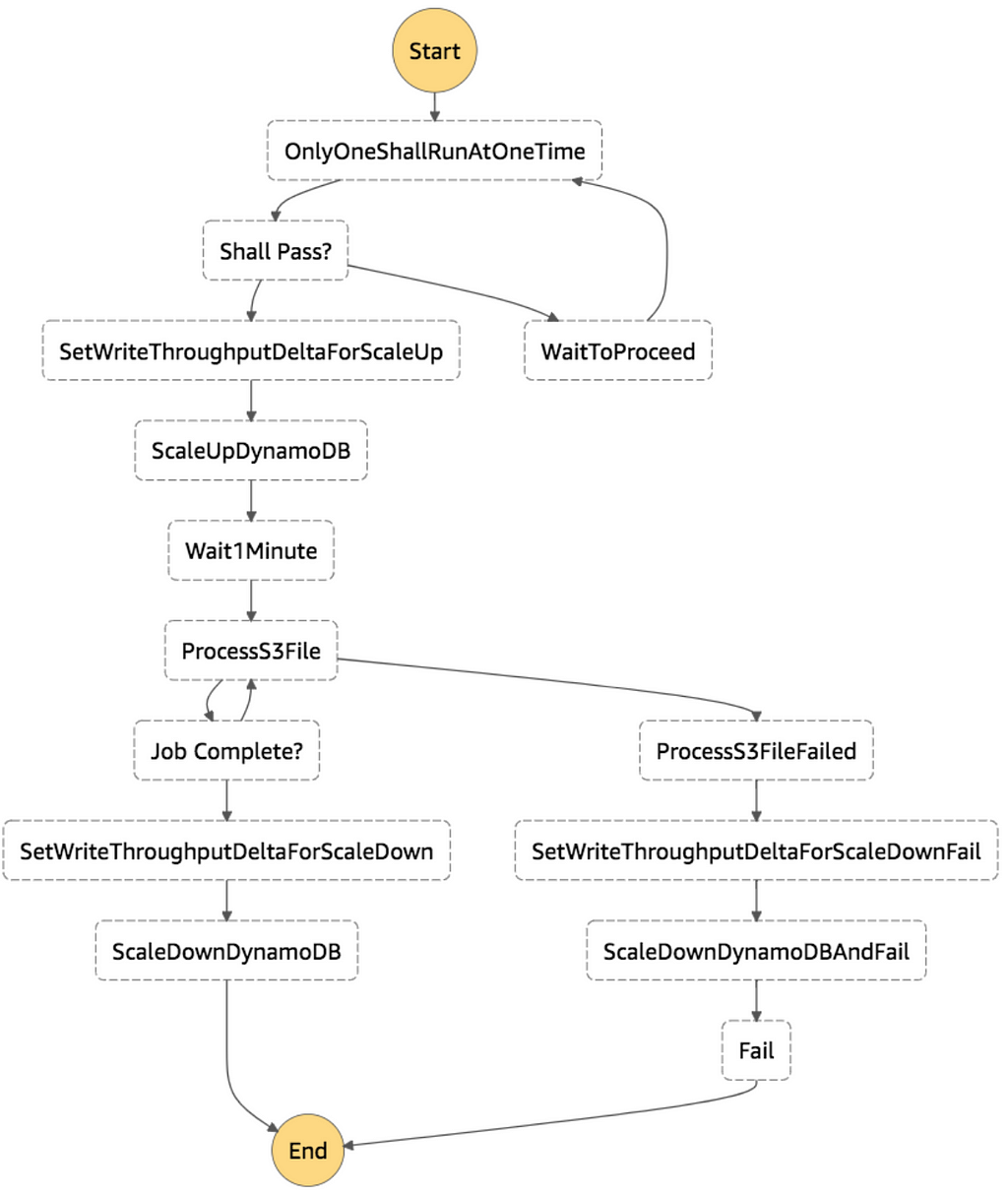Latest news about Bitcoin and all cryptocurrencies. Your daily crypto news habit.
Here at DAZN, we are migrating from our legacy platform into a brave new world of microfrontends and microservices. Along the way, we also discovered the delights that AWS Step Function has to offer, for example…
- flexible error handling and retry
- the understated ability to wait between tasks
- the ability to mix automated steps with activities that require human intervention
In some cases, we need to control the number of concurrent state machine executions that can access a shared resource. This might be a business requirement. Or it could be due to scalability concerns for the shared resource. It might also be a result of the design of our state machine which makes it difficult to parallelise.
We came up with a few solutions that fall into two general categories:
- Control the number of executions that you can start
- Allow concurrent executions to start, but block an execution from entering the critical path until it’s able to acquire a semaphore (i.e. a signal to proceed)
Control the number of concurrent executions
You can control the MAX number of concurrent executions by introducing a SQS queue. A CloudWatch schedule will trigger a Lambda function to…
- check how many concurrent executions there are
- if there are N executions, then we can start MAX-N executions
- poll SQS for MAX-N messages, and start a new execution for each
We’re not using the new SQS trigger for Lambda here because the purpose is to slow down the creation of new executions. Whereas the SQS trigger would push tasks to our Lambda function eagerly.
Also, you should use a FIFO queue so that tasks are processed in the same order they’re added to the queue.
Block execution using semaphores
You can use the ListExecutions API to find out how many executions are in the RUNNING state. You can then sort them by startDate and only allow the eldest executions to transition to states that access the shared resource.
Take the following state machine for instance.
The OnlyOneShallRunAtOneTime state invokes the one-shall-pass Lambda function and returns a proceed flag. The Shall Pass? state then branches the flow of this execution based on the proceed flag.
OnlyOneShallRunAtOneTime: Type: Task Re
Disclaimer
The views and opinions expressed in this article are solely those of the authors and do not reflect the views of Bitcoin Insider. Every investment and trading move involves risk - this is especially true for cryptocurrencies given their volatility. We strongly advise our readers to conduct their own research when making a decision.


